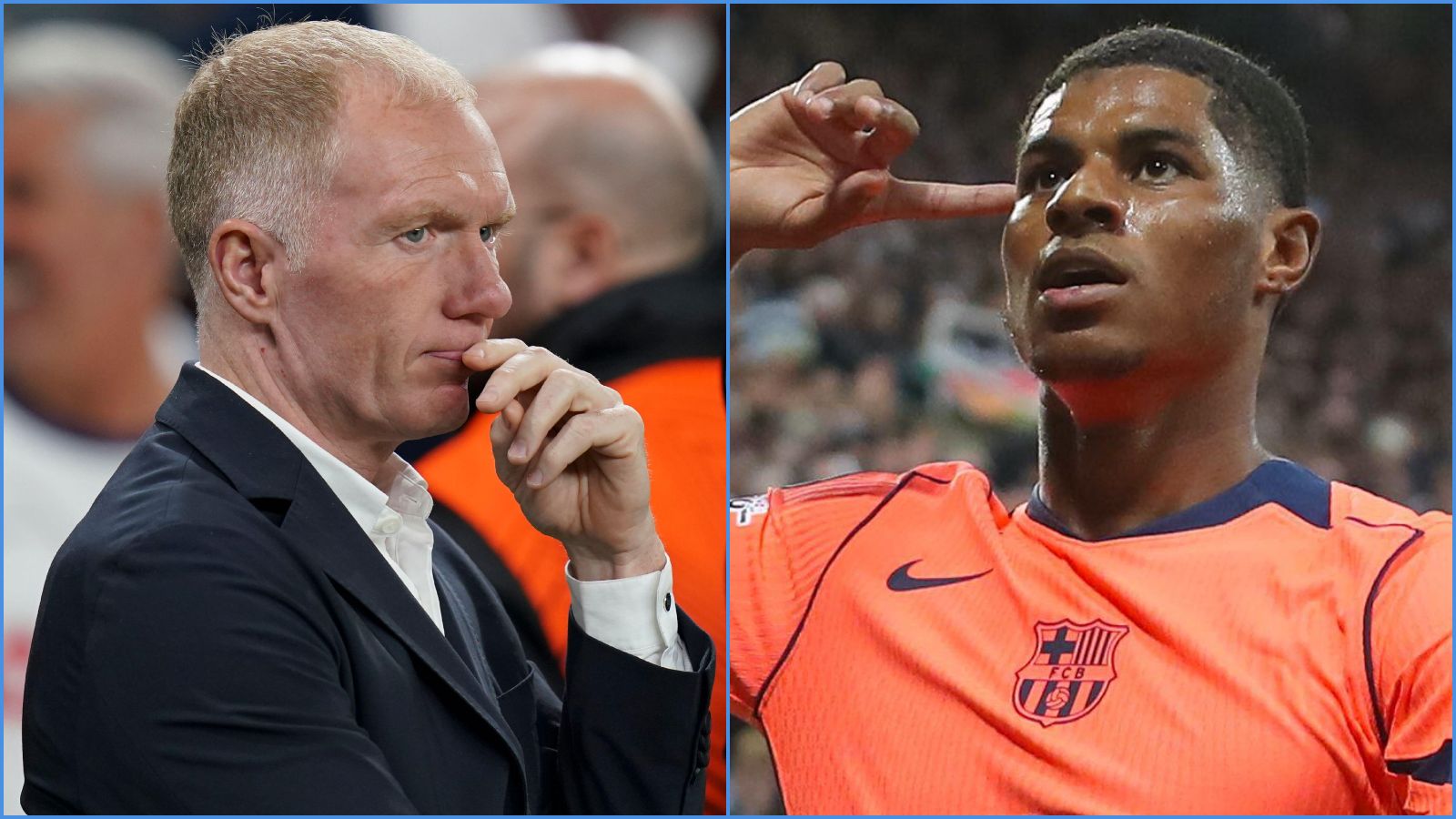Paul Scholes knows the unique pressures of Manchester United – and the possible ‘mistakes’ – better than anyone. So what’s his Marcus Rashford problem?
It won’t have surprised Marcus Rashford that moving to another country has failed to extract him from the Manchester United orbit, nor perhaps how strong opinions toward him remain.
But it would be interesting to hear his thoughts on Paul Scholes openly and happily explaining how “I really struggle to feel happy for him” after Rashford kickstarted his Barcelona career this past week.
That is a remarkable admission, an insight which reveals far more uncomfortable truths about the personality of the pundit than it does the character of the player.
“Mainly because of his attitude, and his attitude at United by the time he was leaving,” Scholes continued, obviously on a podcast, obviously with Nicky Butt and Paddy McGuiness.
“I thought he was a disgrace at United, and not trying, which look, if you fall out with the manager then okay. But remember, you’ve got teammates you’re playing with, you’ve got a massive 80,000 there, whatever it is every single week that you have to put a bit of effort in for.
“The amount of times I saw him at Man United walking, because he wants to leave…I thought his whole demeanour about him was a disgrace.”
The diatribe went on with shots at his work-rate against Newcastle – in a game he decided with two excellent goals – and culminated in a rant about Rashford being dropped for Barcelona’s next game after turning up late to a pre-match meeting.
“What the f**k? How do you sleep in these days?” an increasingly incredulous Scholes asked, despite it long since having been reported that Rashford had been two minutes late because of a delay in filling out an electronic form, that he didn’t miss any of the pre-match preparations and indeed that he set up the third goal in a win over Valencia from the bench.
A repeat of his past indiscretion under Erik ten Hag this was not.
But that is the sort of fabrication one can only expect from a professional pundit who “really struggles to feel happy for” someone whose sacrifices and shortcomings he really should almost uniquely understand.
Scholes has an important platform and authoritative voice, but also an obligation to use those properly in an arena as highly charged as that of Manchester United. If he cannot relate to and explain the pressures a professional footballer faces at the elite level and the misjudgements that can sometimes force them to make, that reflects abysmally on him rather than Rashford.
The line about how Rashford “actually quit on Manchester United, and once you quit once, you’ll quit again” stood out too, as did the references to his age no longer being a defence of his actions.
And at 27 that is absolutely fair. Rashford should know better than many of the decisions he made towards the ostensible end of his Manchester United career suggested.
He might also justifiably point out he could have “quit on Manchester United” far sooner instead of playing through the pain of back, shoulder and foot injuries to be the most-used player by Jose Mourinho and Ole Gunnar Solskjaer, and second for Erik ten Hag.
But a 26-year-old Scholes would have been grateful not to face this constant level of withering censure and scrutiny when he made what has since been described as his biggest career regret.
“I made a mistake,” Scholes has said of a moment his “head had just gone” in November 2001. “I did stupid things when I was a kid, when I was younger,” he added of refusing to play in a League Cup tie against Arsenal 24 hours after only getting 13 minutes from the bench in a defeat to Liverpool.
Except he was no more “a kid” then than Rashford is now, no less responsible for his choices and actions. Scholes was fined two weeks’ wages, much as Rashford was during his infamous Belfast-based indiscretion at precisely the same age around 18 months ago.
The difference is less in the players and far more in the club and its corroded culture. Manchester United in 2001 is the diametric opposite to Manchester United in 2025. The former was defined by the support network and sensational man-management of Sir Alex Ferguson; the latter protects nothing and no-one, exposing all it touches to toxicity and self-destruction.
It is what Scholes and the rest of the “circle of Ferguson” so often overlook or take for granted. Their ludicrous talent aligned perfectly with the reign of a genius manager and elite structure which encouraged individual development and offered an environment in which players were protected. They speak from a position of immense ability and vast experience but also absurd fortune.
Had this infernal brand of omnipresent Manchester United player-turned-pundit arrived a generation or two later, been saddled with hierarchical incompetence and intermittent coaching upheaval throughout their careers and had Bobby Charlton, Denis Law and Bill Foulkes seeking out every microphone ever manufactured to actively undermine and denigrate them at any opportunity, they too might have found it tough and ultimately decided that leaving was in the best interests of all parties.
Rashford did so in the knowledge that bridges had been burned on both sides, not just his. He won’t have expected a pat on the back and a pledge of lifelong support from the fans in doing so, but it also feels entirely ridiculous for one of his presumed heroes to brand him a “disgrace” who he “really struggles to feel happy for” 10 months after his last appearance for a broken club he tried to carry as far as he could.
READ MORE: ‘Self-sabotage’ – Marcus Rashford ‘shows who he is’ after breaking Barcelona ‘rule’
